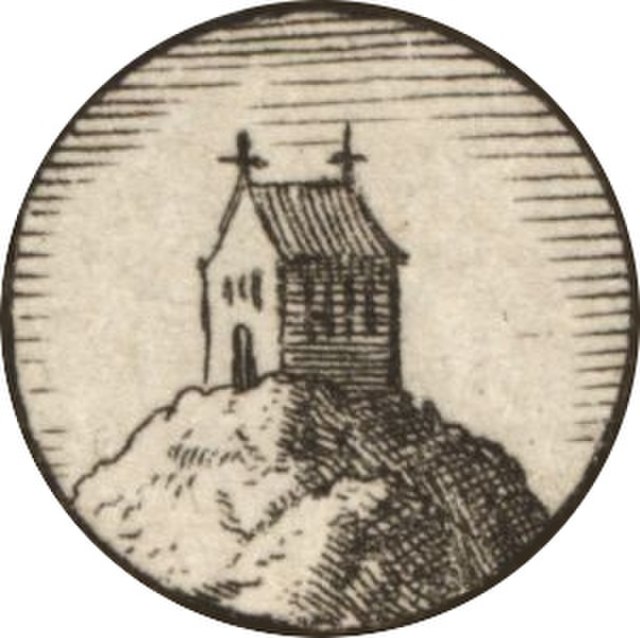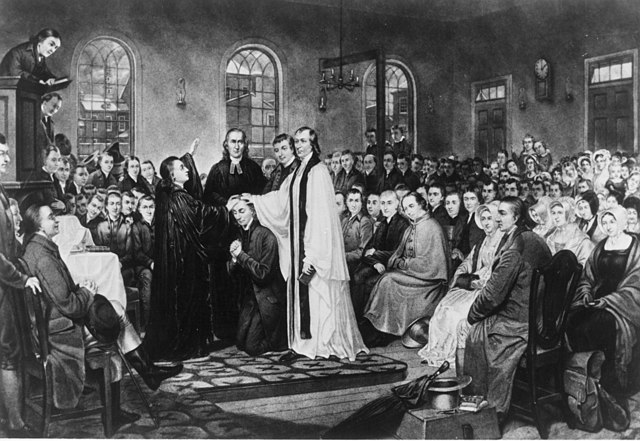In Christian theology, ecclesiology is the study of the Church, the origins of Christianity, its relationship to Jesus, its role in salvation, its polity, its discipline, its eschatology, and its leadership.
Stained-glass window in a Catholic church depicting St. Peter's Basilica in Rome sitting "Upon this rock," a reference to Matthew 16:18. Most present-day Catholics interpret Jesus as saying he was building his church on the rock of the Apostle Peter and the line of popes who claim Petrine succession from him.
A 17th-century illustration of Article VII: Of the Church from the Augsburg Confession, which states "...one holy Church is to continue forever. The Church is the congregation of saints, in which the Gospel is rightly taught and the Sacraments are rightly administered." Here the rock from Matthew 16:18 refers to the preaching and ministry of Jesus as the Christ, a view discussed at length in the 1537 Treatise.
Ecclesiastical polity is the government of a church. There are local (congregational) forms of organization as well as denominational. A church's polity may describe its ministerial offices or an authority structure between churches. Polity relates closely to ecclesiology, the theological study of the church.
The apostles Peter and John laying hands in ordination. Illustration, 1873.
An Anglican deacon, bishop and priest. Priests are usually former deacons in episcopal polity.
The ordination of Methodist Bishop Francis Asbury, 1784.
Cathedral churches like St. Andrews were incompatible with the presbyterian polity taught by John Knox. This statue stands in St. Giles, still called a cathedral despite no longer serving as an episcopal seat.






